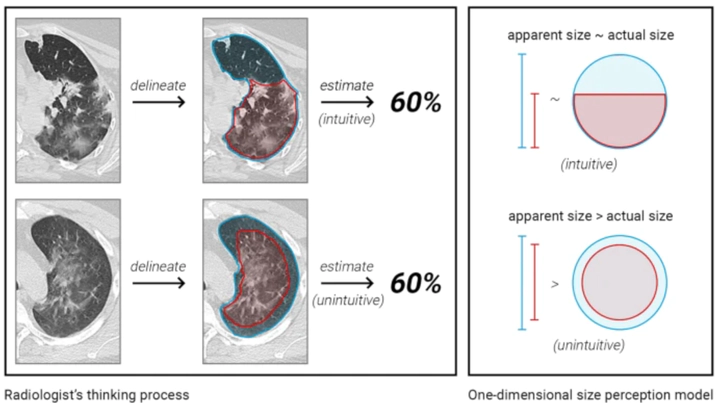Evidence of a cognitive bias in the quantification of COVID-19 with CT: an artificial intelligence randomised clinical trial

Abstract
Nature Scientific Reports | Radiologists overestimate COVID-19 lung involvement on CT due to a psychophysical bias, yet AI support reduces it.
Chest computed tomography (CT) has played a valuable, distinct role in the screening, diagnosis, and follow-up of COVID-19 patients. The quantification of COVID-19 pneumonia on CT has proven to be an important predictor of the treatment course and outcome of the patient although it remains heavily reliant on the radiologist’s subjective perceptions. Here, we show that with the adoption of CT for COVID-19 management, a new type of psychophysical bias has emerged in radiology. A preliminary survey of 40 radiologists and a retrospective analysis of CT data from 109 patients from two hospitals revealed that radiologists overestimated the percentage of lung involvement by 10.23 ± 4.65% and 15.8 ± 6.6%, respectively. In the subsequent randomised controlled trial, artificial intelligence (AI) decision support reduced the absolute overestimation error (P < 0.001) from 9.5% ± 6.6 (No-AI analysis arm, n = 38) to 1.0% ± 5.2 (AI analysis arm, n = 38). These results indicate a human perception bias in radiology that has clinically meaningful effects on the quantitative analysis of COVID-19 on CT. The objectivity of AI was shown to be a valuable complement in mitigating the radiologist’s subjectivity, reducing the overestimation tenfold.